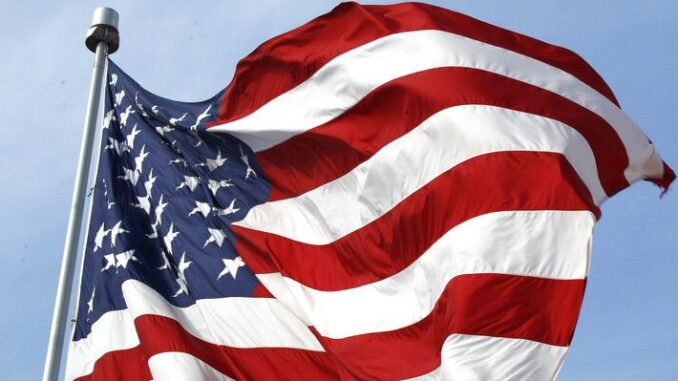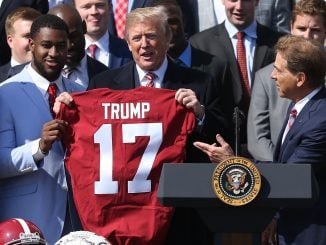
I think it’s fair to say that when most people think of higher education, a full-throated, flag-waving patriotism is not the first thing that comes to mind. Universities are known to be the home of the critic, the activist and the peace advocate.
They’re known to ask hard questions about the American project; cast doubt on the simple and comforting versions of the American story; and argue mightily for a world of greater global sympathy, where national identity might grow less important against the backdrop of our shared humanity.
That was certainly my perception when I arrived at Carolina as a first-generation student, having grown up in the small town of Southport on the coast and the crossroads of Horse Shoe up in the Blue Ridge Mountains. My parents were a little wary of what I might encounter here at what politicians once called — only half-jokingly — the People’s Republic of Chapel Hill. Their concerns didn’t get any lighter when I called home my first year and told them I had a self-avowed communist teaching one of my political science classes. All the rumors were true!
But that simple narrative misses two big things about American higher education, and about public universities in particular. First, colleges and universities have always been a key part of America’s arsenal of democracy, every bit as vital to the national interest as the factories, mines and shipyards you see on World War II posters.
For all the talk of Chapel Hill as an ivory tower, this University has always and forever been eager to serve in the most direct, pragmatic way — “to answer the nation’s present need,” as UNC President Edward Kidder Graham said on the eve of the First World War, when hundreds of young Tar Heels mobilized and much of the campus was transformed into a military training ground.
Graham saw clearly the same thing that our country’s leaders have known for a long time, the insight that has made our military the finest and most capable in the world — knowledge matters. “The modern battle front is truly seen as organized, mobilized ideas in action,” Graham said, and he didn’t just mean the science and technology of warfare.
A military that knows what it’s fighting for — that carries the values of the nation into every task and mission — is a vastly more powerful force than a military driven by shallow loyalty.
If you know how to listen for it, freedom is everywhere in the life of the University. Freedom of thought, freedom of inquiry, freedom of speech, academic freedom, the freedom to learn — public higher education might just be the most freedom-loving corner of our society.
“The reading room of a college library is the very temple of democracy,” wrote the author and essayist E.B. White, reflecting on the early days of the Cold War. “A healthy university in a healthy democracy is a free society, in miniature.”
You may have noticed some of that lively discourse over the last several weeks, and I feel certain you’ve experienced the thrill and challenge of hearing competing ideas in your classrooms and dorm rooms and Zoom rooms over the last several years.
That is all part of the grand American experiment in freedom that you have pledged yourselves to defend, part of the open culture that our universities both nurture and depend on. It is not always easy or comfortable, but it is the American way, and it has produced the most vibrant, most productive, most inspiring nation in the world.
That communist professor I mentioned earlier? He turned out to be one of the better teachers, precisely because he taught me how to grapple with good and age-old questions about this nation that I cherish. He taught me how to live by the maxim of the great Constitutional Scholar Danielle Allen, who wrote, “Simple love of country, land of my mother’s milk, won’t do. My love must be sighted, not blind.”
I hope you’re leaving here with a love of country that is deeper for being more honest, larger for being more knowledgeable, and stronger for having been tested against the ideas and arguments of your fellow citizens.
I hope, too, that you will leave here with the confidence to be translators across American cultures that desperately need more points of connection.
You are scholars and servicemembers; skeptics and patriots; humanists and Americans.
You will know how to hold yourself in a lecture hall or a landing zone, how to represent yourself as a Tar Heel and a member of United States Military.
You will know a rich lexicon of academic jargon, and an even more specialized roster of military terminology.
I hope you’ll speak those two languages often, make those cultures better known to each other, and remind us all that America is a vast and marvelous place, and we should relish all of it.
I am grateful to you, this University is immensely proud of you, and this nation is indebted to you. Godspeed to you all, and God Bless America.
Peter Hans is UNC System president. Remarks are adapted from his speech to graduating military and veteran students from UNC Chapel Hill on May 10, 2024.



